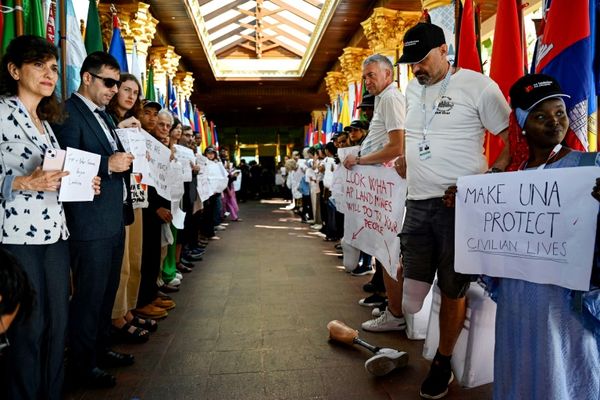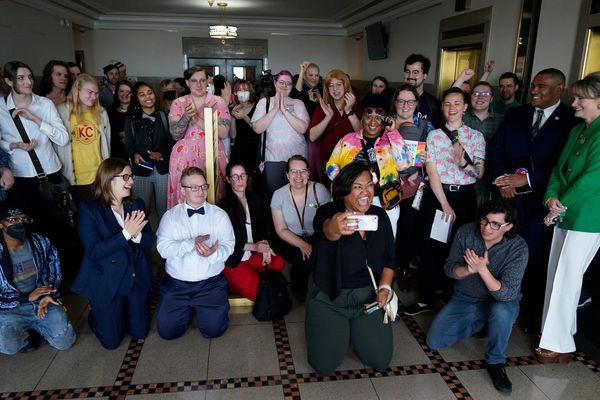Former President Trump's historic indictment sets up a legal proceeding that may look similar to parts of routine felony arrest processing in New York.
Yes, but: It's anything but standard as no sitting or former president has ever faced criminal charges.
- A spokesperson for Manhattan District Attorney Alvin Bragg said in a statement Thursday that the office "contacted Mr. Trump's attorney to coordinate his surrender to the Manhattan D.A.'s Office for arraignment on a Supreme Court indictment, which remains under seal."
- Trump is expected to be arraigned Tuesday at 2:15 p.m. at the Manhattan courthouse, court spokesperson Lucian Chalfen confirmed Friday.
- He is expected to travel Monday from Mar-a-Lago to New York and spend the night at Trump Tower in Manhattan. He plans to surrender Tuesday and then is set to give a speech from Mar-a-Lago at 8:15 p.m. ET.
What happens after an indictment
After a suspect surrenders, they are processed privately, which means that Trump would likely be fingerprinted and may have a mug shot taken.
- Then, the arraignment hearing in New York would likely be the next court proceeding.
- During that hearing, the judge will present the charges against Trump and the former president could enter a plea, per the Department of Justice.
- Video cameras will not be allowed inside the courtroom, but pool photographers can take stills photos before the arraignment begins.
Trump's attorney, Joe Tacopina, told ABC's "Good Morning America" on Friday that the former president "will not be put in handcuffs," adding that Trump will plead not guilty during the upcoming arraignment hearing.
- "I understand they are going to be closing off blocks around the courthouse, shutting down the courthouse," Tacopina said of the arraignment hearing, though he did not give a timeframe.
What happens after an arraignment hearing
If Trump does plead not guilty, a trial will then be required, during which the state will have to prove "beyond a reasonable doubt" that Trump is guilty of the charges.
- But it could take several months for a trial to start, as both sides must exchange information about witnesses and evidence they plan to present in the trial as part of the discovery phase and pre-trial hearings must also be held.
- Trump will be acquitted of the charges if he's found not guilty at the end of the trial. If he's found guilty, he'll likely appeal the verdict.
- If the verdict is upheld, he'll be sentenced, though he'll likely also be able to appeal his sentence.
Zoom out: Trump was indicted Thursday by a New York grand jury on charges related to an illegal hush money payment in 2016 to adult film star Stormy Daniels.
- It's a historic indictment and sets up a legal proceeding as the ex-president launches a 2024 presidential bid.
- The charges agreed on by the grand jury against Trump have not yet been released publicly.
Go deeper... The legal woes surrounding Trump and his Manhattan indictment
Editor's note: This story has been updated with additional developments.






